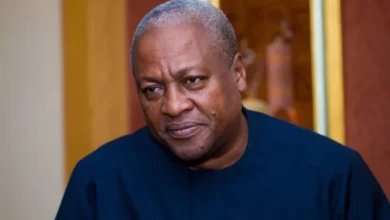CPP in turmoil

The Convention People’s Party (CPP) is in turmoil. This week, the party’s standing committee (SC) comprising regional chairmen and other key party functionaries drawn from the entire country passed a vote of no confidence in the Nana Akosua Frimpomaa Sarpong-Kumankumah-led national executive of the party.
The call was compelling and binding on all executives of the party to resign en bloc. The first to tender her resignation was Nana Yaa Jantuah, the party’s General Secretary, although chairperson, Akosua Frimpomaa has sworn to hang on till the end of her tenure. The current executive is running the last leg of its mandate and was supposed to supervise the 2024 elections before leaving office.
Individual party executives are being accused of fraud and other acts of malfeasance, by some party supporters and followers who petitioned other organs of the party to investigate the activities of the executives in the last three years. Perhaps, the most poignant of all the accusations is the one that claims the CPP leadership has sold its membership data to Alan Kyerematen’s Movement for Change (MoC). Alan has launched an all-encompassing movement, which membership is open to members and supporters of all political parties and floating voters after his resignation from the NPP.
The MoC has adopted a very scientific and technological means of assessing its popular strength by opening voter registration exercise online and engaging especially, the youth in social media conversation campaigning; “and it’s so far catching on everywhere,” Nana Ohene Ntow, a staunch Alan ally told the media recently. Many observers are not the least surprised at the sudden turn of events in the CPP.
“It’s a normal CPP ritual where the party’s interest is only rekindled in the year leading up to an election. That’s where the leadership of the CPP gets exciting. You don’t know whether the CPP organizes from the top or bottom,” veteran journalist, Kwesi Pratt Jnr., disclosed on one of his punditry duties on a Ghanaian radio station. There are others too, who believe the current happenings in the CPP is nothing short of sudden, contending that it’s a cycle that only emerges in an election year.
Most commentators share Pratt’s assessment of the CPP. They are unanimous in their thinking that the turmoil in the CPP is a re-enactment of a well-orchestrated self-inflicted bug which hit the party during election years, where individuals in the party leadership look for other electoral alliances other than working for the interest of the CPP. This is often done with the belief that the party leadership at any given election, cut such deals because of their selfish interests. The one-time dominant political party in Ghana, the recent and the current CPP only discovers its mojo when elections are drawing nearer.
Not that they are organizing to be counted as one of the party’s in the reckoning for political power, but for other non-related CPP matters which results only benefit a few within the party’s top echelon. Over the period, individual party executives had been circling other top political parties, cutting deals without the approval of the mainstream party. Such scandals are exposed and the culprits are punished accordingly, yet any group that assumes the mantle of leadership of the CPP does not learn any lessons. So, such dismissals have become a perennial cycle that evolves after every four years of elections in Ghana.
The CPP tried albeit unsuccessful, to re-enact its magical years in the 2008 general elections. It was one election that the party showed a lot of promise. The likes of Papa Kwesi Nduom, Prof. Agyemang Badu Akosa, Bright Akwetey, and Dr. Osafo among others excited the base of the CPP to the extent that the two dominant parties— NPP, and NDC; and their supporters began recognizing what seemed a real renaissance of the then dormant political giant. When it became obvious that for once, the CPP was about to showcase a new strength and shed off the lethargy, its self-inflicting bug struck again.
On the day of the 2008 elections, many of the party’s leading members went all out to torpedo the chances of their flagbearer with then-youth organizer, Kwabena Bonfeh setting an unprecedented call by dismissing the content and character of his candidate, Dr. Papa Kwesi Nduom as someone not suited to lead the CPP, let alone the entire country in a radio discussion programme. Apparently, the Bonfeh action had the tacit approval of the other presidential aspirants who were defeated in the CPP’s presidential primary.
It virtually came as no surprise when the 2008 results were called with Dr. Nduom getting a terrible 1.3 percent of the national votes. The fight between Nduom and the others intensified after 2008, forcing the former out of the CPP to form the Progressive People’s Party (PPP). Some CPP elements had thought with Nduom out of the way, the party would be fighting to reclaim its lost glory, instead, the CPP has run the very opposite of its motto: Forward Ever, Backward Never; substituting it with Forward Never, Backward Ever.
Backwardness is now the forte of the CPP. This is the party that won every Ghanaian election in the 60’s except in 1969 when it was proscribed by the military junta which overthrew Ghana’s first president, Osagyefo Dr. Kwame Nkrumah and the CPP in 1966. After the party was banned in 1966, the CPP went through many name adoptions and splintering groups until it was re-birthed and its CPP name was restored on 29th January 1996. The party was founded in 1949 after the 1948 riots in the Gold Coast and eventually pushed through for the independence of Ghana on March 6th, 1957.
Source: Richmond Keelson, Ontario






